Submitted by WA Contents
"Border walls are erected as a physical manifestation" says Teddy Cruz
Czech Republic Architecture News - Jun 27, 2017 - 11:11 19978 views

After long debates and triggering sessions on 'In/visible City' at the reSITE 2017 last week, Teddy Cruz's presentation on "border walls" tackled the problems of infrastructure and communities in a wider scale by making radical propositions on our city borders - which marked the festival on the 2nd day of the conference program.
Teddy Cruz, Professor of Public Culture and Urbanization in the Department of Visual Arts at the University of California and co-founder of Estudio Teddy Cruz + Forman, evaluated several conflicts that took place in the city borders within social and political context during his impressive presentation at the reSITE 2017.
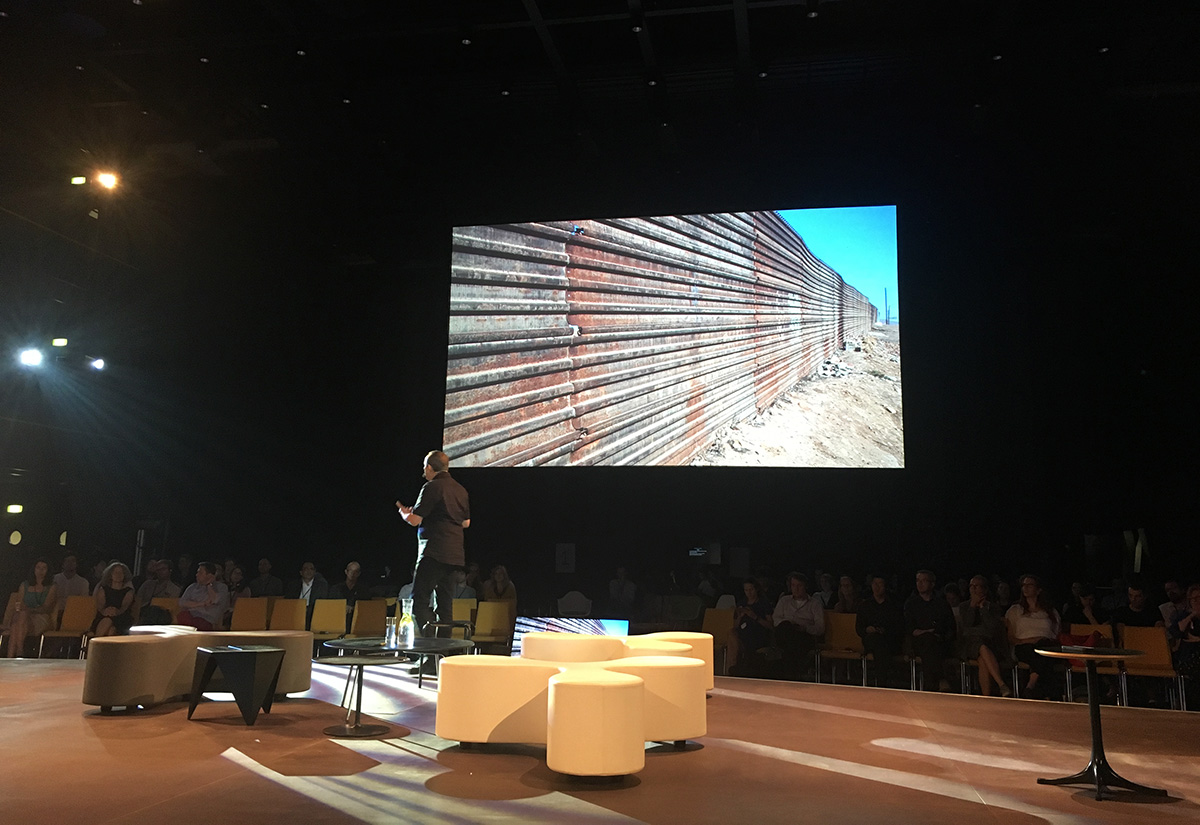
Prof. Teddy Cruz directs his studio with Fonna Forman - Professor of Political Theory and Founding Director of the Center on Global Justice at the University of California, San Diego - Teddy Cruz's is internationally known for his urban research on the Tijuana/San Diego border. Cruz and Forman's work focuses on urban conflicts and 'informal architecture' as sites of intervention for rethinking public policy and civic infrastructure, with a special emphasis on Latin American cities.
During his presentation at the reSITE 2017, Cruz emphasised "the positive impacts of immigrant" for the city borders and he showed how they visualise "socio-economic urban transformations" from bottom to top. "We should use citizenship as an integral tool to produce equal projects" said Teddy Cruz.
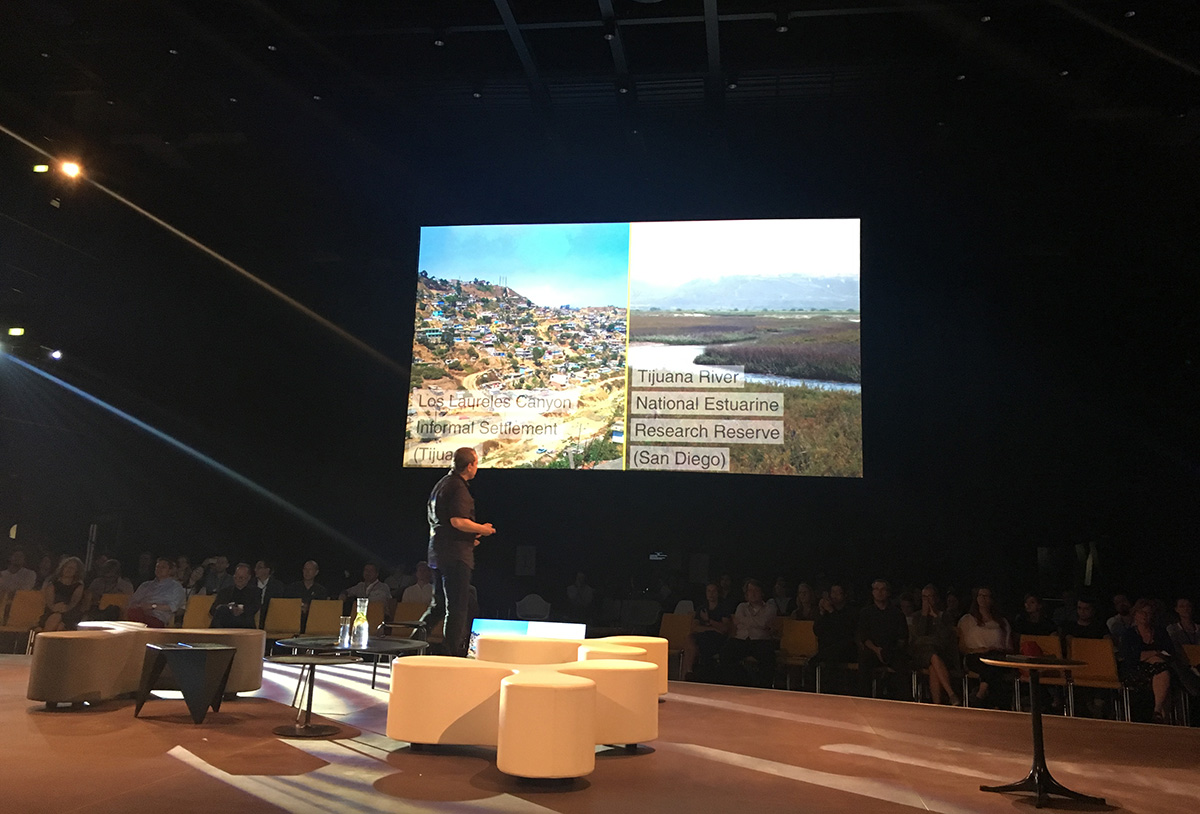
Teddy Cruz also made his propositions to find new living/alternative forms for many urban-rural communities in each place and desirable condition. Prof. Cruz's civic lessons included:
- Before transforming the city physically, transform social norms
- Better to fight violence with community process than with "law & order"
- Arts and culture are engines of civic engagement
Proposing a new type of 'urban pedagogy' tool to transform city border walls in an equitable way, Cruz's emphasises were mostly based on "more organised collective" effort created by shared values of communities. "Border walls are erected as a physical manifestation", added Teddy Cruz.
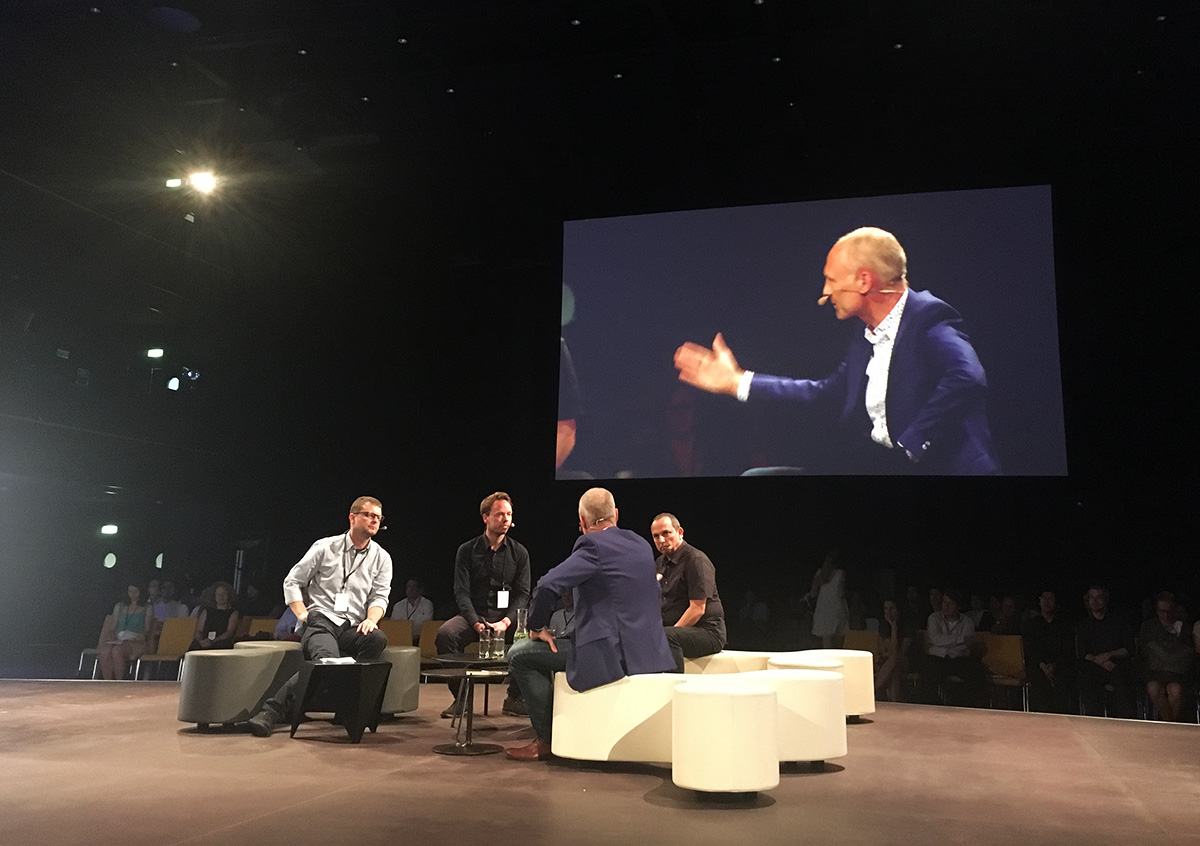
Teddy Cruz in conversation with Levente Polyák Urban Planner, Researcher, Activist and Policy Adviser, Eutropian Research and Action, Budapest and Michal Broža Head, United Nations Information Center, Prague.
"Political equilibrium in the cities creates equal projects", emphasized Teddy Cruz. "We should evaluate the positive impacts of immigrant for every city".
"If we want to create more collaborative effort, we should provide a cross-border education", added Teddy Cruz.
"How do we curate formal and informal capacities? and how can we co-produce public policy?". Teddy Cruz's lecture also focused on some strategies of the distributions of local resources for any community to get an equitable feedback.
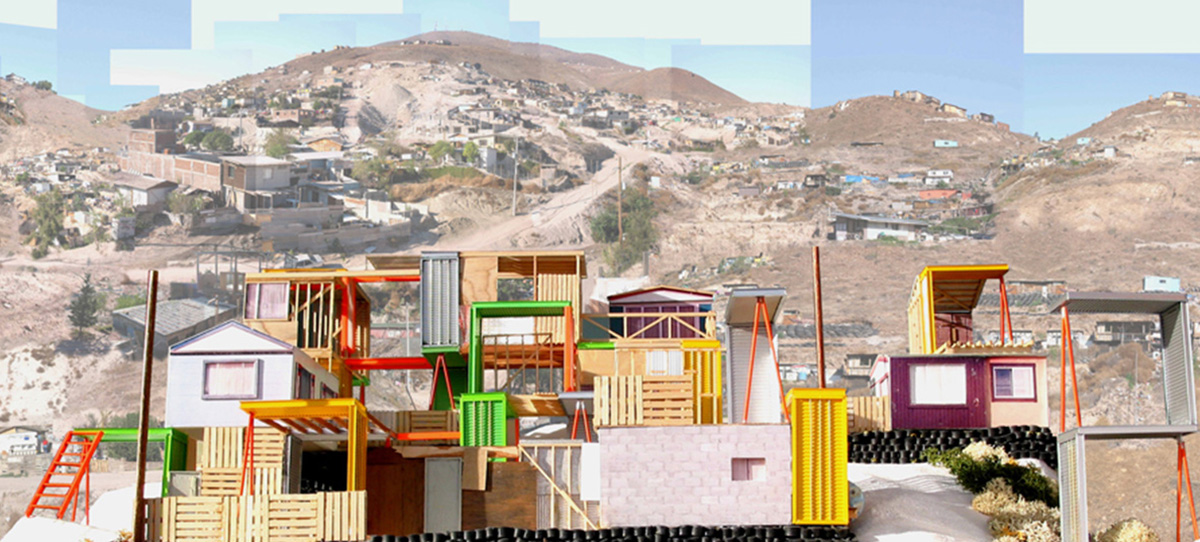
"Manufactured Sites" by Estudio Teddy Cruz + Forman. The project developed as an "informal architecture" proposing the reuse of materials discarded from manufacturing plants and repurposed to create low-cost affordable housing for the underpaid employees. Image courtesy of Estudio Teddy Cruz + Forman
"How should we distribute sources and resources? Cruz talked about the redistribution of poverty starting from 'centralising' to 'decentralizing' condition. "Diverse sectors needed to deal with many underestimated issues", said Teddy Cruz.
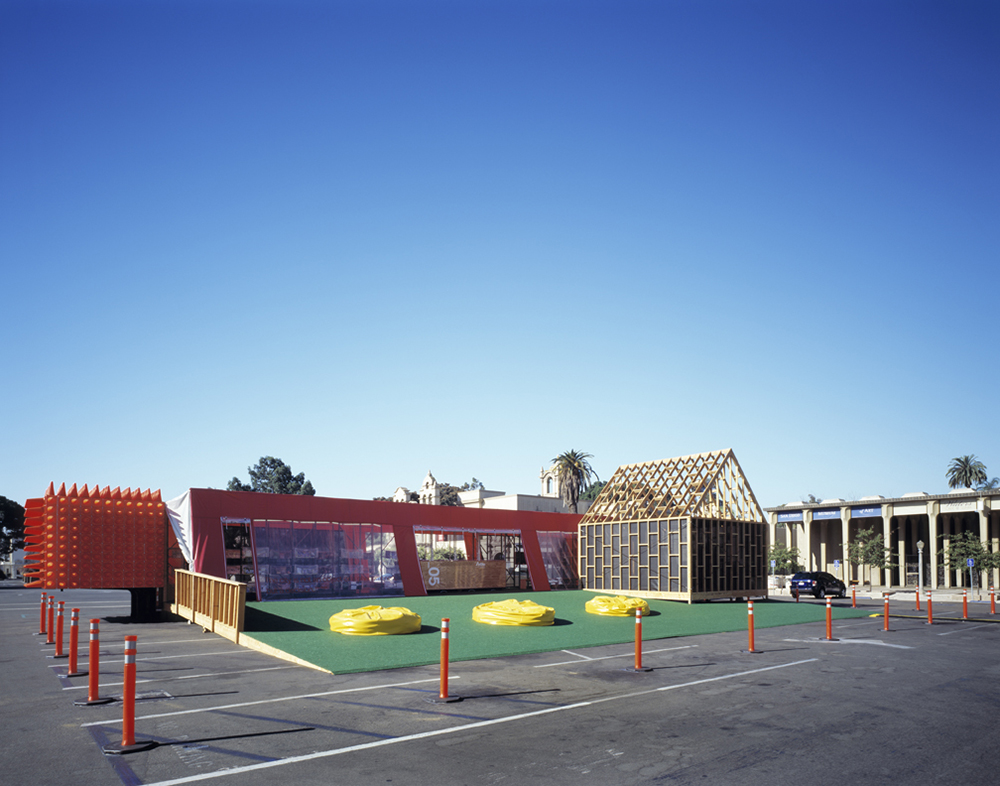
InfoSite was a nomadic public space and cultural reference library built for the Cross-Border arts project inSite 05. Image courtesy of Estudio Teddy Cruz + Forman
"We're building community capacity for a political activity. We're building cross-border community stations. Community and Universities act also as a co-developers for themselves in a wider scale," concluded Cruz.
Teddy Cruz's keynote address was arranged in cooperation with The Aspen Institute Central Europe. The session was moderated by Petr Vizina Head, Cultural Division of Czech Television's News Agency, Prague.
All conference images © WAC
> via reSITE
